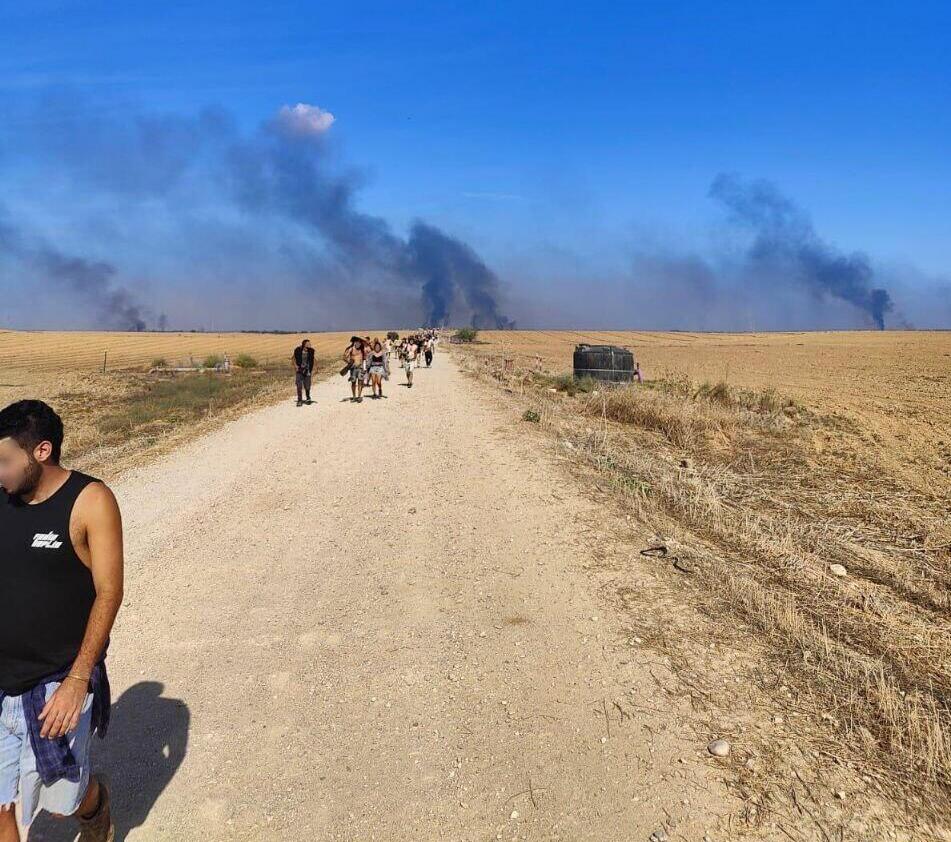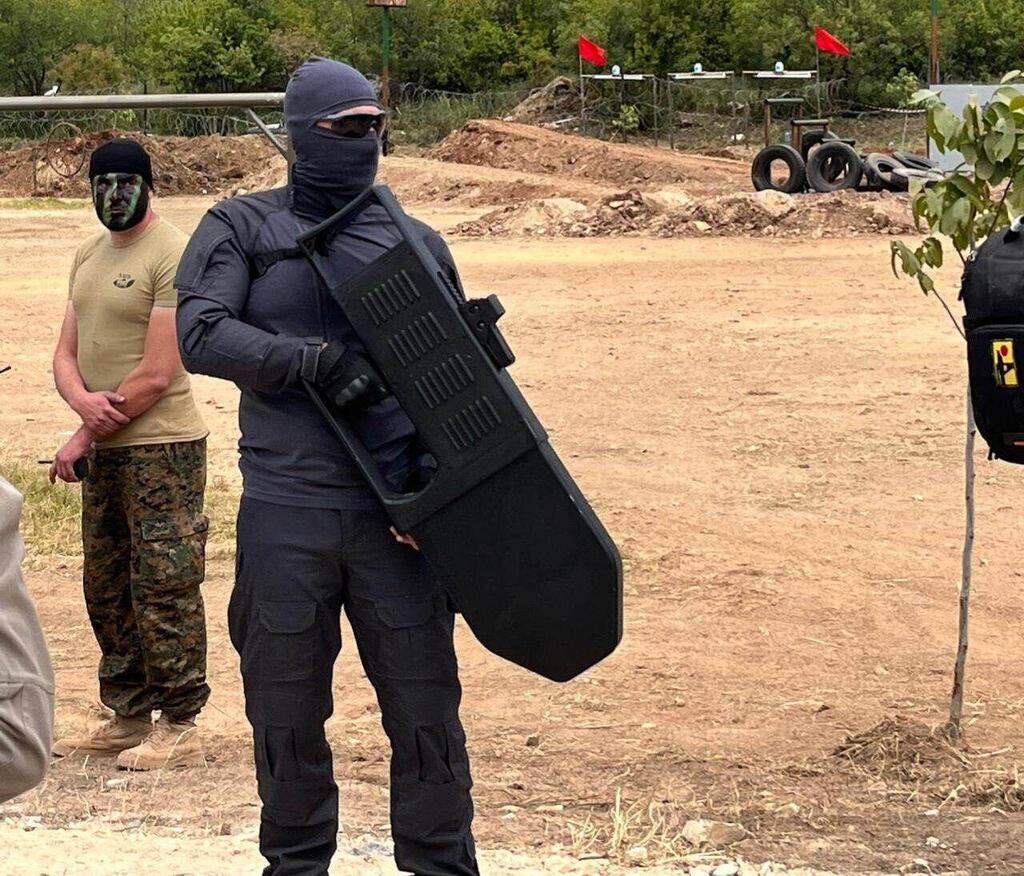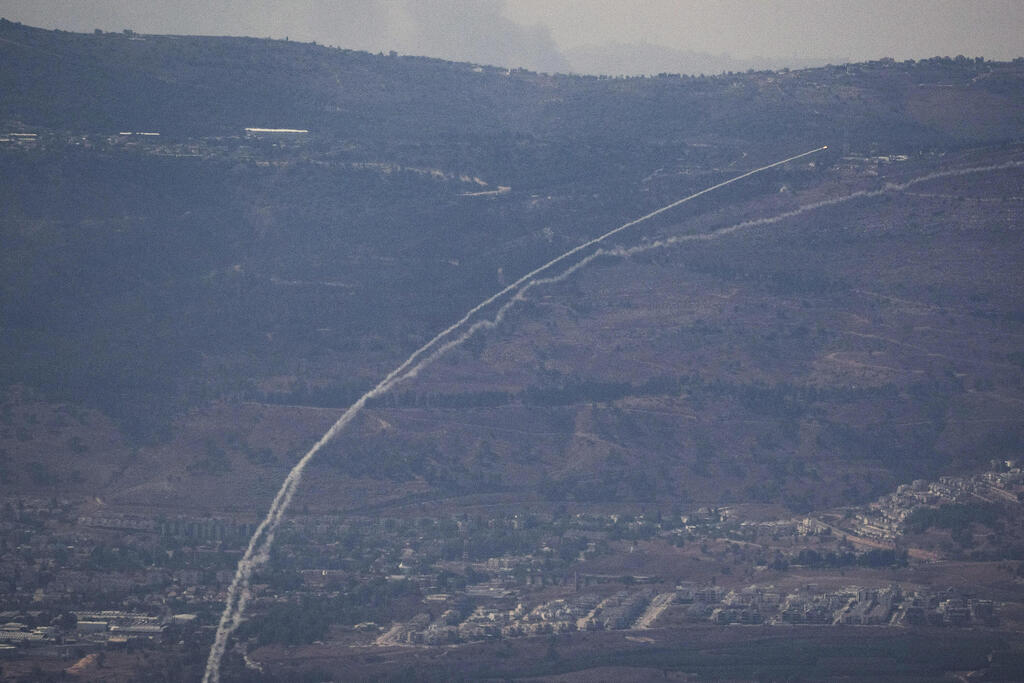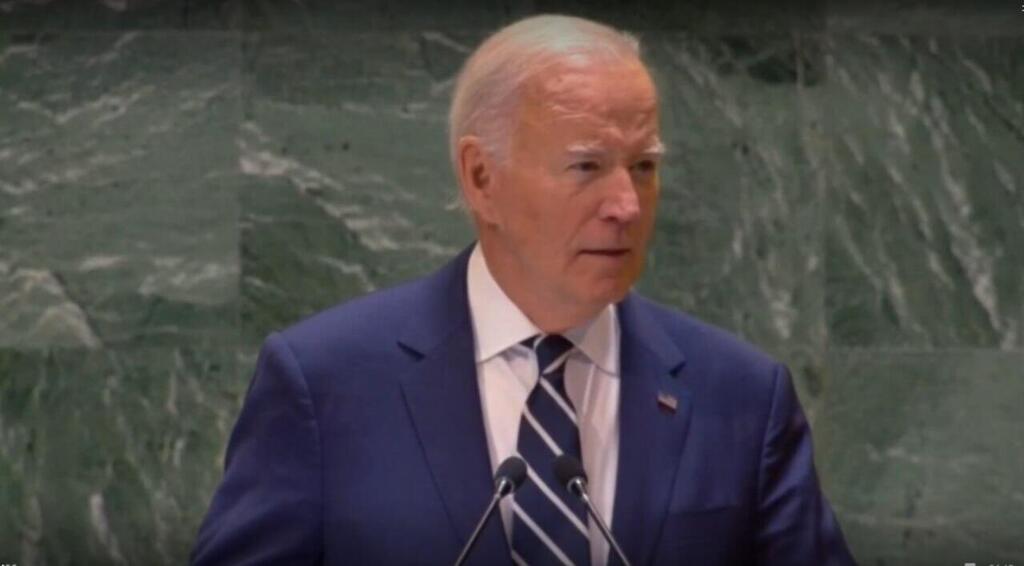After a year of war, which started with a vicious massacre of Israeli civilians by Hamas, the West is busy repeating the same mantras about solutions, mantras it refuses to abandon even in the face of their complete irrelevance.
French President Emmanuel Macron seeks to “get back to a political solution,” or even multiple political solutions. U.S. Vice President Harris says the same thing using different words, calling for a “hostage and cease-fire deal” in the war against Hamas and a “diplomatic solution across the Israel-Lebanon border region,” in a statement that entirely avoids using that unpleasant word, Hezbollah.
Germany’s government has somehow “convinced” itself that there “must be a diplomatic solution to the conflict” between Israel and Hezbollah and, of course, that a “negotiated two-state solution is the only way to bring about a sustainable resolution of the Middle East conflict.”
Diplomacy of no consequences for mass murder
All these bloviations about diplomacy conveniently and studiously ignore the nature of the people and organisations on the other side. As Bruce Hoffman carefully explained in The Atlantic a year ago, Hamas’ founding charter of 1988 calls for the genocide of the Jews. The updated version of 2017 is no different. Hezbollah’s guiding principles are even easier to digest. They include the following statement, as if designed for reluctant readers:
“We vigorously condemn all plans for negotiation with Israel, and regard all negotiators as enemies, for the reason that such negotiation is nothing but the recognition of the legitimacy of the Zionist occupation of Palestine.”
Both Hamas and Hezbollah are supported by Iran, whose Supreme Leader Ayatollah Ali Khamenei told anyone who might listen on 4 October this year that the sadistic Hamas massacres were “logical and legal” and that Israel “will not last long.”
In its obsession with avoiding war, the West has nothing to offer by way of a response to Iran, except for finger-wagging.
The conclusion should be self-evident. The terrorists of Hamas and Hezbollah, and their patrons in Iran, are vicious criminals, intent on mass murder. There is no one to talk to, and no possible subject for discussion. Yet, the West avoids this conclusion by all and any means. This is because, as I have previously discussed, it seeks to avoid the consequences of reaching such a conclusion, namely that there is no alternative to war.
In its obsession with avoiding war, the West has nothing to offer by way of a response to Iran, except for finger-wagging. Macron says that “attacks against Israel… must cease,” while German Chancellor Olaf Scholz directs Hezbollah and Iran to “immediately put a stop to their attacks.” These two gentlemen do not appear to understand that if they wanted to call themselves nobodies unworthy of attention, they could not have chosen words more effective for the purpose.
Neither France nor Germany has any intention of using force to coerce any of Israel’s enemies, or, indeed, to coerce anyone else. Nothing stands behind the demands they supposedly make of Iran. Their rhetoric, as putrid as it is puny, serves only as an open invitation for all and any criminals on the planet to see through it. It also invites the criminals to consider whether it might be time to take a bite out of France and Germany, who give no hint of being willing to fight anyone.
An obsession with a catastrophic cease-fire
In view of its pusillanimity, the West’s calls on Israel to accept a cease-fire are particularly repugnant. Yet, Japan urges the “realization of a cease-fire,” and Germany intends to “continue to advocate for a cease-fire.” Neither country has anything to say about what, specifically, will follow a cease-fire. This implies that Israel should simply stop shooting, in return for nothing at all.
A man who has elaborated, in brief detail, what a cease-fire would, in fact, mean is British Defense Secretary John Healey. He spoke as follows:
“A cease-fire in Lebanon that allows the UN plan for a separation zone between the Israelis and … Hezbollah … and a cease-fire in Gaza so that we can get all of the hostages out.”
This is worse than nothing at all. It means Hezbollah would survive, re-arm, re-organize, and prepare to cross this so-called ‘separation zone’ under the cover of a murderous barrage of rockets of all kinds, to murder hundreds and perhaps thousands of Israelis. Hamas, which is equally intent on murder and which took the hostages in the first place, would also survive and prepare to carry out further atrocities. Iran, naturally, would continue to equip and organize both murderous organizations, while strengthening its own forces and quite probably making nuclear bombs.
There is no acknowledgment that these cease-fire plans are not only nonsensical, but would represent a catastrophe for Israel. Instead, there is loose talk, for example by Sky News’ Middle East correspondent Alistair Bunkall, that “the Israeli military has degraded Hamas’s ability” to carry out future massacres, without any concessions being made to the reality that Hamas’s abilities can and will be rapidly restored, should a cease-fire be agreed.
The pressure for a cease-fire is essentially an expression of psychological separatism, one of the diseases that now benights the Western mind. Without ever stating so formally, the West acts in practice as if Israel is not of the West, Israel’s vital security interests are quite separate from those of the West and can, therefore, be negotiated away without any compunction. Not only is this policy unencumbered with morality, it is also practically bankrupt.
A policy of bankruptcy
In no area is the bankruptcy of Western policy more evident than in the supply of arms to Israel. Macron has declared that “France doesn’t ship any” and that “arms deliveries… cannot produce” security, while Healey emphasized that “we’ve suspended those [arms] licenses where they could affect lives in Gaza.” Thus, Israel is meant to fight murderous terrorists without French arms and with only such British ones which, by some method unknown to man, ‘do not affect lives.’ This is essentially a formal invitation for Hamas, Hezbollah and Iran to continue their attacks.
The U.S., Israel’s one essential ally, has provided $17.9 billion in military aid over the course of the past year, but this is less than it might appear. Hidden within Brown University’s report on the subject is the fact that the figure includes the $3.8 billion of annual aid that was previously agreed by the Obama administration, which of course did not account for the present war.
When modern munitions costs are accounted for, the practical effect of American aid becomes even less impressive. $17.9 billion is a gigantic sum of money for one person, but it would buy some 5,000 Arrow ballistic missile interceptors, at a price of about $3.5 million each, for a country at war. Of course, Israel might not need so many interceptors, but it does need a very wide variety of munitions and equipment, all of which cost money. As a comparison, America has so far provided $61.3 billion of military aid to Ukraine, but even this great sum has paid for a distinctly limited amount of the heavy equipment that Ukraine needs most.
American aid does help keep the IDF going, but it is neither intended, nor capable of, fundamentally altering the strategic context. This means that even as the assistance helps Israel fight, it does not in and of itself enable Israel to destroy Hamas and Hezbollah, let alone deal with Iran’s nuclear program. Israel’s enemies know this, and it further encourages them to continue the war.
Ending wars instead of winning them
Even as the West’s armaments policy makes the war longer, Kamala Harris speaks of the “need for this war to end.” As she does so, neither she nor her interviewers make any reference to the war that America did end, in 2021. That was the war in Afghanistan, which President Joe Biden announced would end with the withdrawal of all American forces on the symbolic twentieth anniversary of the al-Qaeda attacks on September 11, 2001.
The Taliban ended the war for Biden, without waiting for the anniversary. On August 15, 2021, they took Kabul, and on the next day, Afghans fell to their deaths from the wheel well of an American C-17 transport aircraft taking off from the airport. On the final day of August, America left Afghanistan. It took until March this year for the former chairman of the Joint Chiefs of Staff, the now-retired General Mark Milley, to publicly say that “the whole thing was a strategic failure.” A strategic failure for which no one has borne any responsibility.
6 View gallery
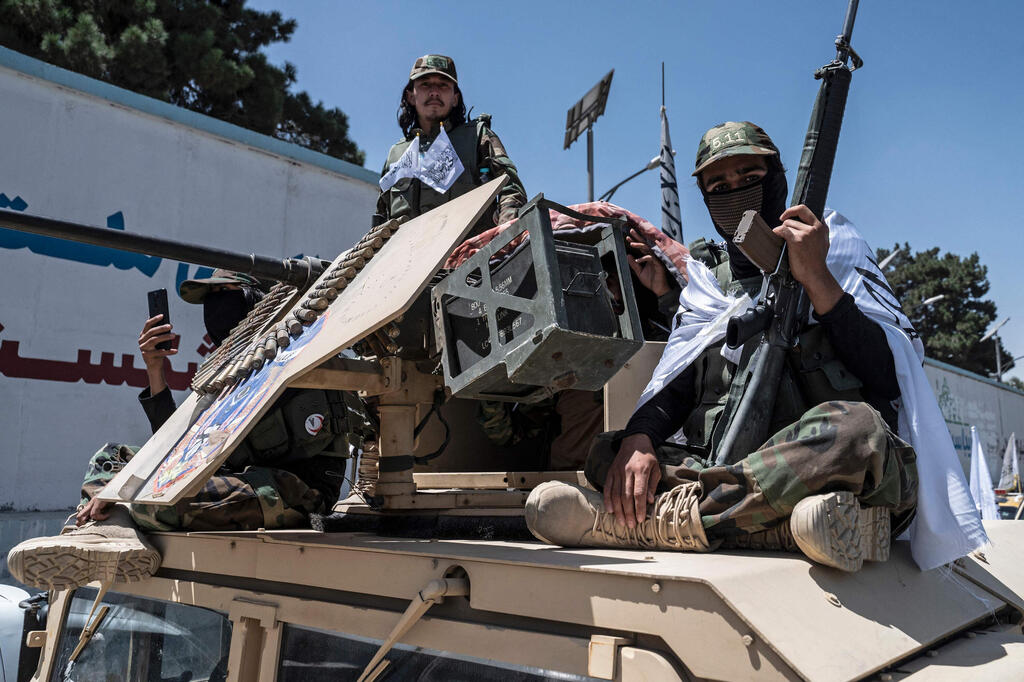

Taliban fighters celebrate two-year anniversary of US withdrawal Afghanistan
(Photo: Wakil KOHSAR / AFP)
The Biden-Harris administration had ended the war with Afghanistan, and with it its own credibility. America’s ability to deter aggressors had been poured down the sink. Not quite six months later, on 24 February 2022, Vladimir Putin invaded Ukraine from multiple directions. The ignoble General Milley, then still in post, was predicting Ukraine could fall within 72 hours. This did not come to pass, because Ukrainians were then, and remain now, rather less interested in ending wars at any cost than is the West.
Now, Harris wants to end another war, without any plan for what might or will happen when the war ends. In substance, the administration and the wider West are endorsing the common Middle Eastern practice of a "hudna," a tactical cease-fire as practiced by the prophet Mohammad in his war with the Quraysh tribe. Once Mohammad had re-armed and was ready to crush the Quraysh, he duly abandoned the hudna and conquered Mecca. That was as long ago as 628 AD, so one is left wondering why the West has still not learned that Middle Eastern cease-fires are worth about as much as used toilet paper.
The consequences of weakness
Since the West’s diplomacy is not supported by any kind of force and does not have any substantive and worthwhile result as its object, it will inevitably fail. Even before it has definitively failed, it has had severe consequences.
The Biden administration is forced to admit that “there is a limit to what we can do” to influence Israel, even as it no longer attempts to exert effective influence on Iran. Its policy of limited strikes on the Houthis does not even prevent the latter from firing another pair of long-range missiles at central Israel, not to mention the Houthis’ continuing threat to closer targets such as commercial ships. Contemporary America is closer to obtaining the status of a laughing stock than maintaining that of a superpower.
Russia observes all this and takes more American hostages. The latest is Stephen Hubbard, aged 72, accused with customary Russian implausibility of having been a mercenary in Ukrainian service. Hubbard is merely the latest victim of the West’s descent into inane impotence. There will be many millions of others if the present policies continue.
- Dan Zamansky is a British-Israeli independent historian and author of The New World Crisis, a Substack analyzing the problems of today.
Get the Ynetnews app on your smartphone:


